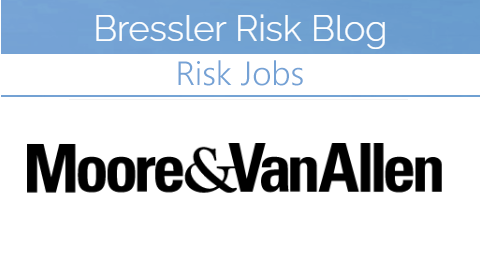Lawyer Conflicts News & More — Investigatory Conflicts, Regulatory Conflicts & Law Firm Hack”-ing” (not “-ed”) Allegations
Posted on
“Launch House splits with law firm conducting its harassment investigation” —
- “In response to the allegations first surfaced by the news publication Vox, the startup claimed that it would undergo an independent, third-party investigation. But as some former members of Launch House have noted, the company is using the same law firm for both its defamation warnings and its independent investigation.”
- “While it’s not a violation to have the same law firm handle two somewhat connected legal matters — one on behalf of Launch House for defamation and one to look into the allegations raised by victims — it is an optical challenge.”
- “After all, Launch House advertised that the firm was expected to conduct a neutral investigation, but it’s not really ‘third party’ if the same firm is going after employees, members and journalists speaking about the allegations.”
- “Indeed, the appearance of conflict of interest — or the idea that the law firm, Benesch Friedlander Coplan & Aronoff, LLP — could provide a more favorable outcome to Launch House due to its other work with the startup, was enough to rock the boat. After a TechCrunch inquiry about Launch House’s heavy reliance on the outfit, co-founder and CEO Brett Goldstein said that the startup has asked the law firm to end its investigation into the company and is turning to another law firm for its fresh perspective.”
- “Goldstein added that a completely separate team within Benesch Friedlander Coplan & Aronoff has been working on the investigation, and that Launch House ‘trusted their ability to remain impartial with those standard separation practices.'”
- “However, he said in his statement, ‘we do not want there to be even the appearance of any conflict, so a new law firm will be engaged as soon as possible to conduct this crucial work… We must learn exactly what happened, so we can best ensure it never happens again.'”
“NLRB Scraps CVS Ruling, Citing Ex-Member Emanuel’s Conflict” —
- “The National Labor Relations Board has vacated a second case involving William Emanuel, a former board member who violated ethics rules by participating in cases where he owned stock in one of the companies.”
- “A three-member panel Monday scrapped the Feb. 5, 2021 decision, in which the board sided with CVS Health Corp. in a dispute over the scope of a bargaining unit in 33 of its Chicago-area pharmacies.”
- “The two Democrats on the panel, Chair Lauren McFerran and member Gwynne Wilcox, vacated the decision and replaced it with a retroactive order guaranteeing the same outcome. They said it wouldn’t unravel a subsequent contract reached between CVS and the International Brotherhood of Teamsters, but would serve to clean up Emanuel’s conflicts.”
- “The NLRB members cited an earlier decision to vacate an Exxon Mobil ruling, saying it’s the best remedy when a board member is accused of violating ethics law.”
- “In both cases, the NLRB inspector general found that Emanuel—a former shareholder at the management-side firm Littler Mendelson— broke federal ethics law by failing to monitor his investments in companies with cases pending before the board. The IG concluded Emanuel had disqualifying conflicts of interest in five cases.”
- “A Bloomberg Law investigation published in March found that Emanuel repeatedly ignored the advice of ethics officials, creating at least the possibility of self-enrichment in his public role. Emanuel held close to $300,000 at some points in two exchange-traded sector funds that invested substantially in the companies’ shares, according to hundreds of emails and financial documents obtained through records requests and released by the board.”
“Dechert and former partner Neil Gerrard sued over hacking claims” —
- “International law firm Dechert has been named as a defendant in a $100m claim alleging that its former head of white crime, Neil Gerrard, used cyber mercenaries to hack the emails of Farhad Azima, an Iranian-American aviation mogul who lives in Kansas City, RollonFriday reports today (21 October).”
- “Gerrard, a former policeman who was Dechert’s head of white collar crime, was instructed by the UAE sheikhdom Ras al-Khaimah (RAK) to investigate allegations the former head of its Investment Authority was engaged in fraud.”
- “As the scope of Dechert’s investigation under Gerrard expanded, it encompassed Karem Al Sadeq, the Investment Authority’s former legal advisor, who said that as a result of the probe he was wrongfully arrested and incarcerated in a UAE prison. Al Sadeq is suing Dechert, Gerrard and other partners in a separate claim and alleges that he was blindfolded and tied to a chair while Gerrard interrogated him.”
- “You can read the article in full using the link above. A spokesperson for Dechert told RollOnFriday: ‘The claim against the firm is denied and will be defended.'”
- “The link to the claim, which is being brought in The United States District Court for the Southern District of New York, is here.”
- “The High Court has previously ruled that Gerrard committed deliberate acts of wrongdoing in relation to the fees he generated while conducting a probe into corruption at ENRC mining conglomerate. That extremely lengthy judgment is here.”









